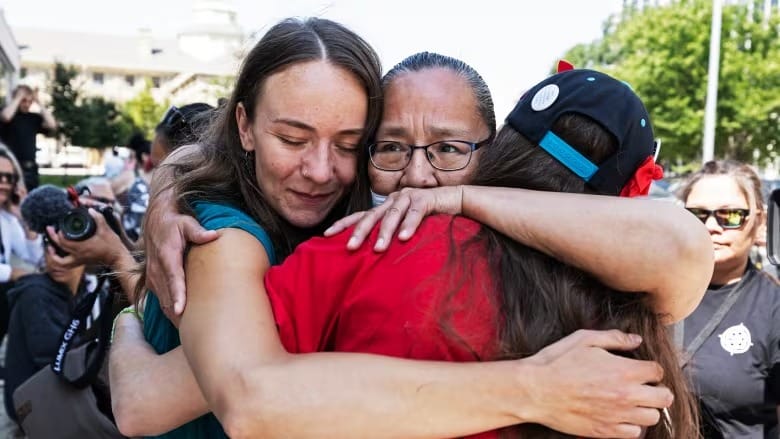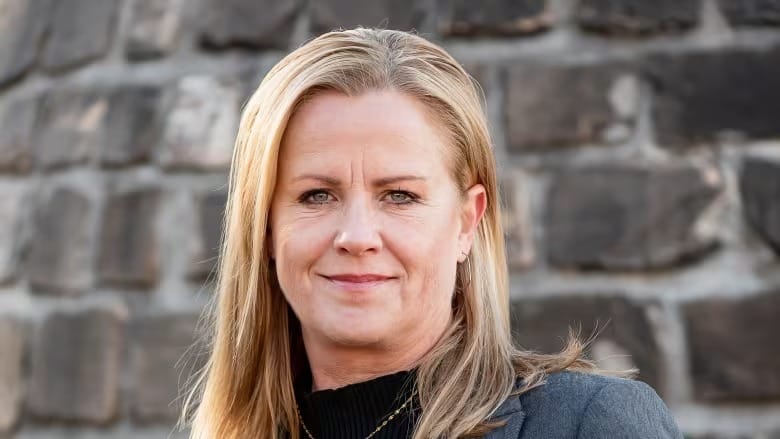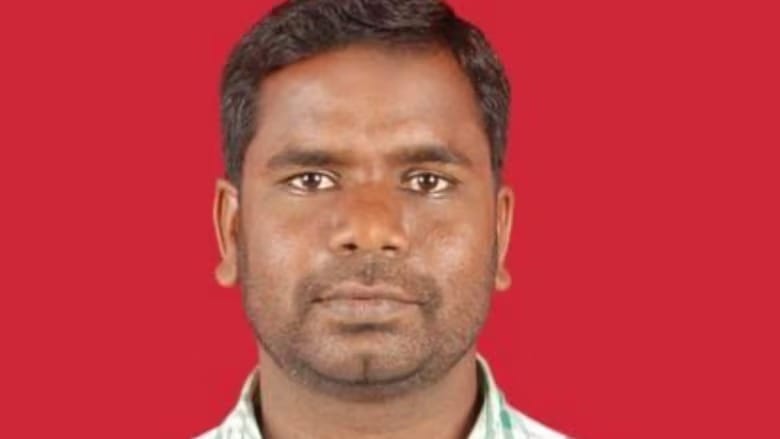Impact statements to be delivered at Manitoba serial killer's sentencing vital 'part of the record': advocate
Court will hear how murders of 4 women have affected families, community at Jeremy Skibicki sentencing

On Wednesday morning, a Winnipeg courtroom will address how the murders of four women by a convicted serial killer have impacted not only the victims' families but also the wider Indigenous and non-Indigenous communities.
Jeremy Skibicki, 37, was convicted of first-degree murder last month for the deaths of three First Nations women — Morgan Harris, 39, Marcedes Myran, 26, and Rebecca Contois, 24 — and an unidentified woman, referred to as Mashkode Bizhiki'ikwe, or Buffalo Woman, by community leaders. Authorities believe the unidentified woman was Indigenous and in her 20s.
Contois was a member of O-Chi-Chak-Ko-Sipi First Nation (Crane River), while Harris and Myran were members of Long Plain First Nation. All four women were murdered in Winnipeg between mid-March and mid-May 2022.
In his July 11 ruling, Manitoba Courtof King’s Bench Chief Justice Glenn Joyal stated that Skibicki’s crimes reflect the severe issues surrounding missing and murdered Indigenous women and girls in Canada.
At the sentencing hearing on Wednesday, the court will hear about the broader community impact of these crimes.
Sandra DeLaronde of the organization Giganawenimaanaanig, formerly known as the MMIWG2S+ Implementation Advisory Committee, stated, “We have an opportunity as a community to discuss the implications of this case for our safety and well-being. We know this case has had a significant impact on all Manitobans.”
The organization, which focuses on implementing the calls for justice from the 2019 MMIWG inquiry, collected feedback from across the province after Skibicki’s conviction. This feedback will be presented in court through both written statements and graphic visualizations created by an artist.
Skibicki’s defense had unsuccessfully argued that he should be found not criminally responsible due to a mental disorder. The trial revealed that Skibicki targeted vulnerable Indigenous women from Winnipeg homeless shelters, bringing them to his North Kildonan apartment where he sexually assaulted or confined them before killing them in his bathtub.

The verdict, finding Skibicki guilty on all four counts of first-degree murder, followed a high-profile trial that led to calls for searching a Winnipeg-area landfill for the remains of two victims. While partial remains of Contois were found in garbage bins and at the Brady Road landfill, Harris and Myran’s remains are believed to be at the Prairie Green landfill. A search of that site, initially deemed unfeasible and later a political issue, is planned to begin later this year.
Skibicki now faces a mandatory life sentence with no parole for 25 years.
Opportunity for Healing
Despite the automatic life sentence, the Crown requested a separate sentencing hearing to allow for victim and community impact statements.
Scott Newman, a criminal defense lawyer not involved in the case, noted that sentencing usually occurs immediately after a conviction for first-degree murder, as the life sentence is the maximum penalty available. He explained, “In cases like this, the sentencing process provides an opportunity for healing for the families and community, and for holding the offender accountable.”
Approximately ten victim impact statements and several community impact statements will be presented on Wednesday. Family members of Harris, Myran, and Contois will read their statements, and DeLaronde will present a community impact statement.
DeLaronde emphasized the importance of acknowledging the community’s voice. “This community impact statement shows that it’s not just about one family or one trial,” she said. “It becomes part of the public record, which allows us to advocate for systemic changes.”
Words and Art
Engagement sessions in Winnipeg, Brandon, The Pas, and Thompson gathered feedback from around 60 people on the case’s impact, according to DeLaronde.
Artist Roxanne Greene from Shoal Lake 40 First Nation created visualizations based on the feedback. Greene, who has personal concerns about community safety due to having a teenage daughter and younger cousins, noted, “We were able to create a clear representation of how the community felt as a result of these events.”
DeLaronde compiled the feedback into a community impact statement, hoping Chief Justice Joyal will consider it in his sentencing decision to highlight the need for systemic change.





